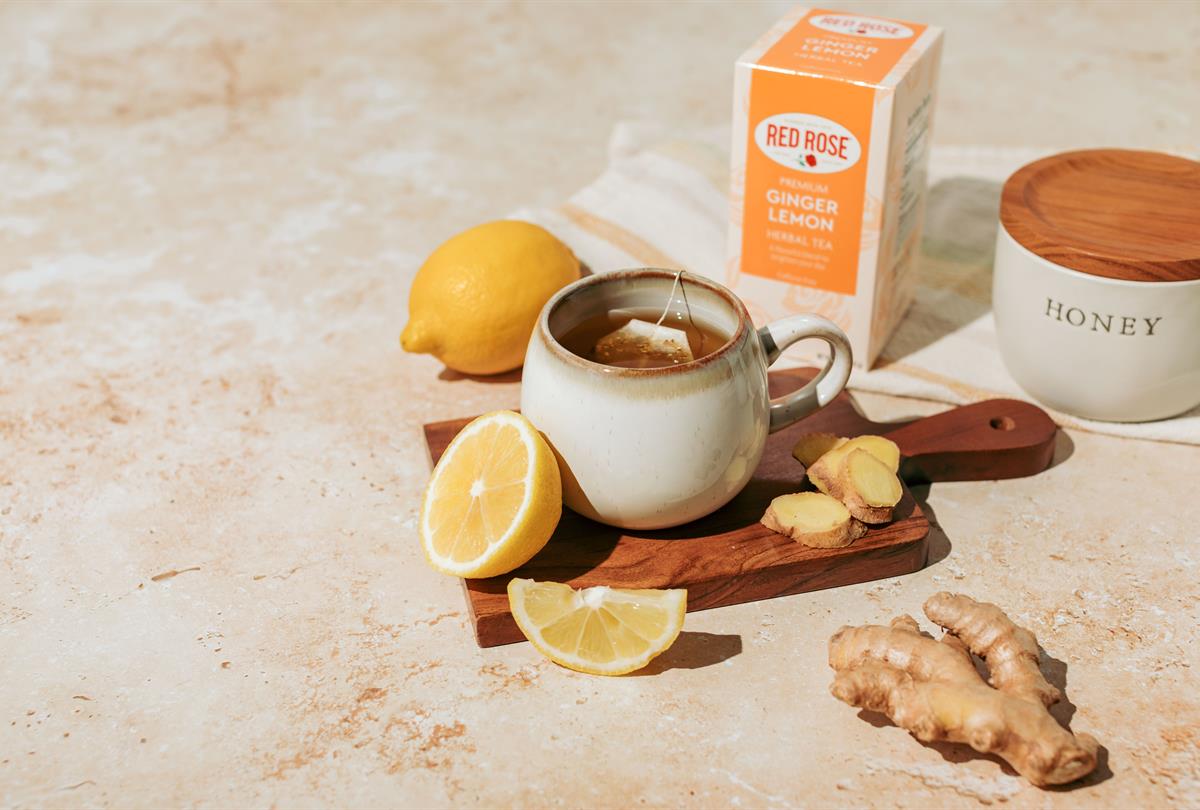What is herbal tea?
In today’s fast-paced world, herbal tea has quietly experiences a resurgence. The recent surge in popularity embraces the soothing charm of herbal teas in today’s demanding world. Many tea drinkers have been favoring herbal blends as a healthier option that is more natural, is caffeine-free, and contains potential health benefits.
Herbal tea is a beverage made from the infusion of various dried herbs, flowers, fruits, spices, or other plant materials.
What are the potential health benefits of herbal tea?
Those seeking more health-conscious alternatives to sugary and caffeinated beverages often turn to herbal teas. Herbal teas can be made hot or iced and have natural ingredients and potential health benefits.
The growing preference for natural products recently has made herbal teas the option of choice. Many herbs have various health benefits, such as aiding digestion, reducing stress, or promoting better sleep. For those looking to reduce their caffeine intake, herbal teas can be enjoyed throughout the day without the stimulating effect of caffeine.
Can drinking caffeine-free teas replace water?
While caffeine-free teas can contribute to your daily fluid intake, they should not replace water entirely. Water is essential for various bodily functions, such as regulating temperature, transporting nutrients, and eliminating waste. Caffeine-free teas like herbal teas or decaffeinated black or green teas can be a healthy addition to your hydration routine, offering some flavor variety and potential health benefits. However, they may not provide the same level of pure hydration as water because some compounds in teas can have mild diuretic effects. It's essential to balance tea consumption with plain water to ensure proper hydration. Aim to primarily rely on water and use caffeine-free teas as a complementary choice for overall fluid intake.
How many cups of herbal tea is good to drink per day?
The recommended daily intake of herbal tea can vary depending on factors such as your individual health, tolerance, and the specific herbal teas you choose. In general, most people can enjoy 3-4 cups of herbal tea per day as part of a balanced diet.
Does herbal tea neutralize the effect of caffeine?
Herbal tea does not neutralize the effects of caffeine but is caffeine-free itself. Herbal teas are made from various plant ingredients like herbs, fruits, flowers, and spices, none of which naturally contain caffeine. If you consume herbal tea alongside a caffeinated beverage like coffee or black tea, it won't counteract or reduce the caffeine's stimulating effects. However, some people choose herbal tea as a caffeine-free alternative when they want to avoid or reduce their caffeine intake. It's essential to recognize that herbal teas have their unique flavors, aromas, and potential health benefits, but they won't directly impact the caffeine content or its effects in your body. If you're looking to counteract caffeine's effects, the best approach is to reduce or eliminate your caffeine consumption or wait for its stimulating effects to wear off naturally.
Which herbal tea is best for after dinner?
For a soothing and digestive herbal tea after dinner, consider options like:
1) Mint Tea: Mint tea, particularly peppermint or spearmint, is an excellent choice after dinner. It has a refreshing and soothing quality that can aid digestion and alleviate any post-meal discomfort. Mint tea's cool, minty flavor makes it a popular choice for relaxing after a meal.
2) Chamomile Tea: Chamomile tea remains a top pick for post-dinner relaxation. It boasts a gentle, floral taste and is renowned for its digestive benefits and sleep-promoting properties.
3) Ginger Lemon Tea: Lemon ginger tea combines the digestive benefits of ginger with the refreshing citrus notes of lemon. This combination can help soothe indigestion, reduce bloating, and add a zesty twist to your after-dinner beverage.
4) Raspberry Tea: Raspberry-flavored herbal teas are a delightful option for those who enjoy fruity and sweet flavors. While not specifically known for digestive properties, the pleasant taste can be a comforting way to end your meal.
Ultimately, the best herbal tea for you after dinner depends on your taste preferences and any digestive issues you might want to address. Each of these options can provide a satisfying and soothing way to unwind after a meal.
Try Red Rose Tea's Herbal Tea Collection!
Red Rose Tea's herbal tea selection is the ideal caffeine-free alternative to sugary drinks. With a wide range of enticing flavors, these teas provide a delicious beverage option without the need for added sugars. Crafted from quality ingredients like real herbs and fruits, they offer a natural and wholesome choice. Free from caffeine, Red Rose Tea herbal tea bags eliminate energy crashes and sleep disturbances. By choosing these teas, you reduce sugar intake and embrace a healthier, hydrating, and relaxing alternative that supports your well-being while delivering satisfying taste experiences.

